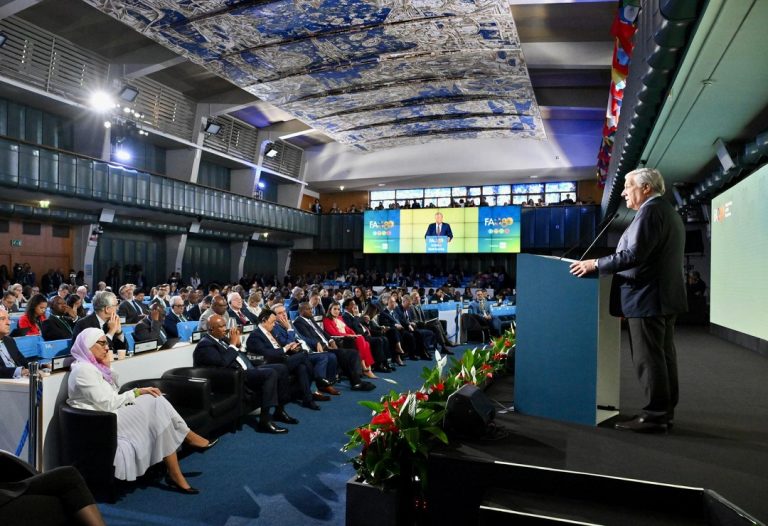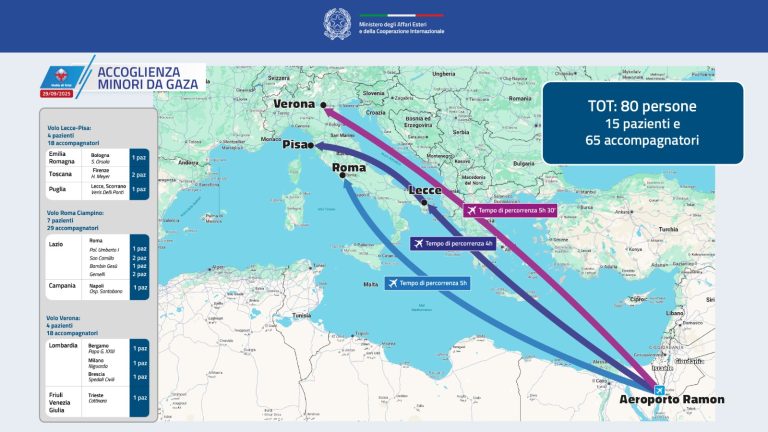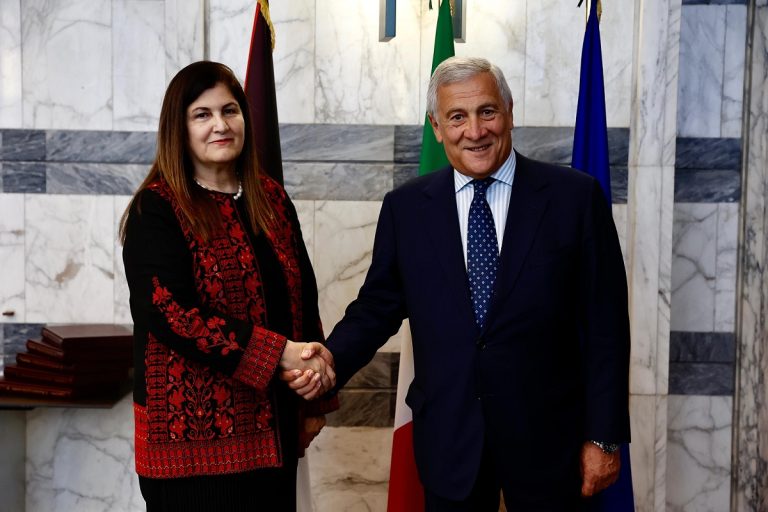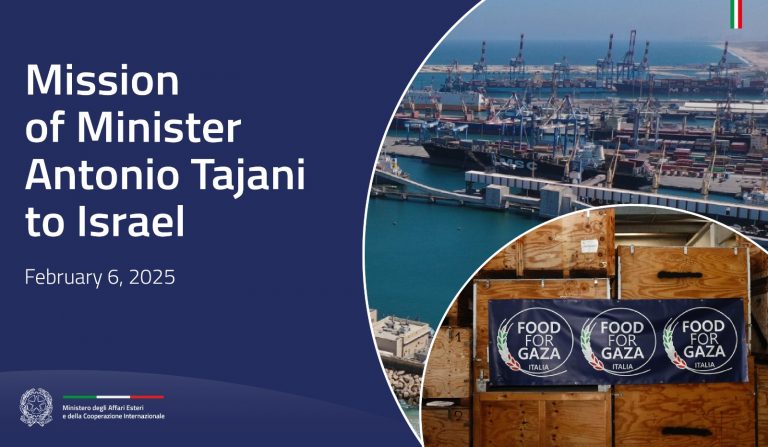At a coordination meeting held at Palazzo Chigi on humanitarian assistance for the Gaza emergency, initial directions were agreed to align the efforts of the various Italian ministries. On behalf of the Prime Minister, Giorgia Meloni, the Deputy Prime Minister and Minister of Foreign Affairs and International Cooperation, Antonio Tajani, chaired a first roundtable to assess available resources across public administrations and match them with requests received from Gaza.
This is a whole-of-government effort. In addition to Minister Tajani, the meeting was attended by the Ministers of University and Research, Anna Maria Bernini; Agriculture, Francesco Lollobrigida; Health, Orazio Schillaci; Regional Affairs, Roberto Calderoli; Disability, Alessandra Locatelli; and Civil Protection, Nello Musumeci, as well as Undersecretary to the Presidency of the Council, Alfredo Mantovano, senior intelligence officials, the Head of the Civil Protection Department, Giuseppe Ciciliano, and representatives from the Ministries of Defence and Education.
Building on the experience of Food for Gaza, the Government intends to step up its engagement. The Italian Development Cooperation is preparing an initial aid package focused on food security, while also prioritising healthcare and education, which remain the key pillars of Italy’s action to strengthen Palestinian institutions. A first technical mission from the Italian Foreign Ministry will visit Jerusalem, Ramallah and Jordan early next week for meetings with local authorities and United Nations agencies. The objective is to make use of hospitals in the region to treat Palestinian children who are injured or suffering from serious illness. The Civil Protection Department is evaluating the dispatch of prefabricated units for use as hospitals, schools and temporary shelters, and has made available a field hospital that could be provided by the Piedmont Region.
Within the healthcare framework, admitting Palestinian children to Italy for specialised medical treatment will remain a priority. Minister Tajani has instructed that healthcare assistance should be delivered first and foremost within the region, particularly in Jordan and Egypt. Hospitals within Italy’s national health system — including Bambino Gesù, Gemelli, Rizzoli and Meyer — have already expressed their willingness to collaborate with Italian medical facilities operating in those countries. This sector will also involve the private healthcare and innovation community, with the aim of deploying doctors, equipment and advanced projects in telemedicine, prosthetics, and maternal and child health.
On the humanitarian front, Italy has already been actively responding to the crisis in Gaza, having delivered 2,400 tonnes of food and essential supplies and welcomed over 1,200 Palestinians, including nearly 200 children currently being treated in 22 Italian hospitals. The Government now intends to broaden and intensify these efforts. The Italian Foreign Ministry is preparing new humanitarian reception operations and the largest food aid shipment since the beginning of the crisis — 100 tonnes in total, collected with contributions from leading entities across the Italian economic system.
These efforts are complemented by the “University Corridors”, launched in early October with the arrival of a group of Palestinian students and researchers awarded scholarships in Italy. Further operations are planned in the coming weeks to welcome an additional 60 individuals, including students and family reunifications. The education and training sector is also essential for shaping the future leadership of the Palestinian National Authority. Italy stands ready to design programmes to support the development of a modern, efficient public administration, capable of managing reconstruction and essential public services.






